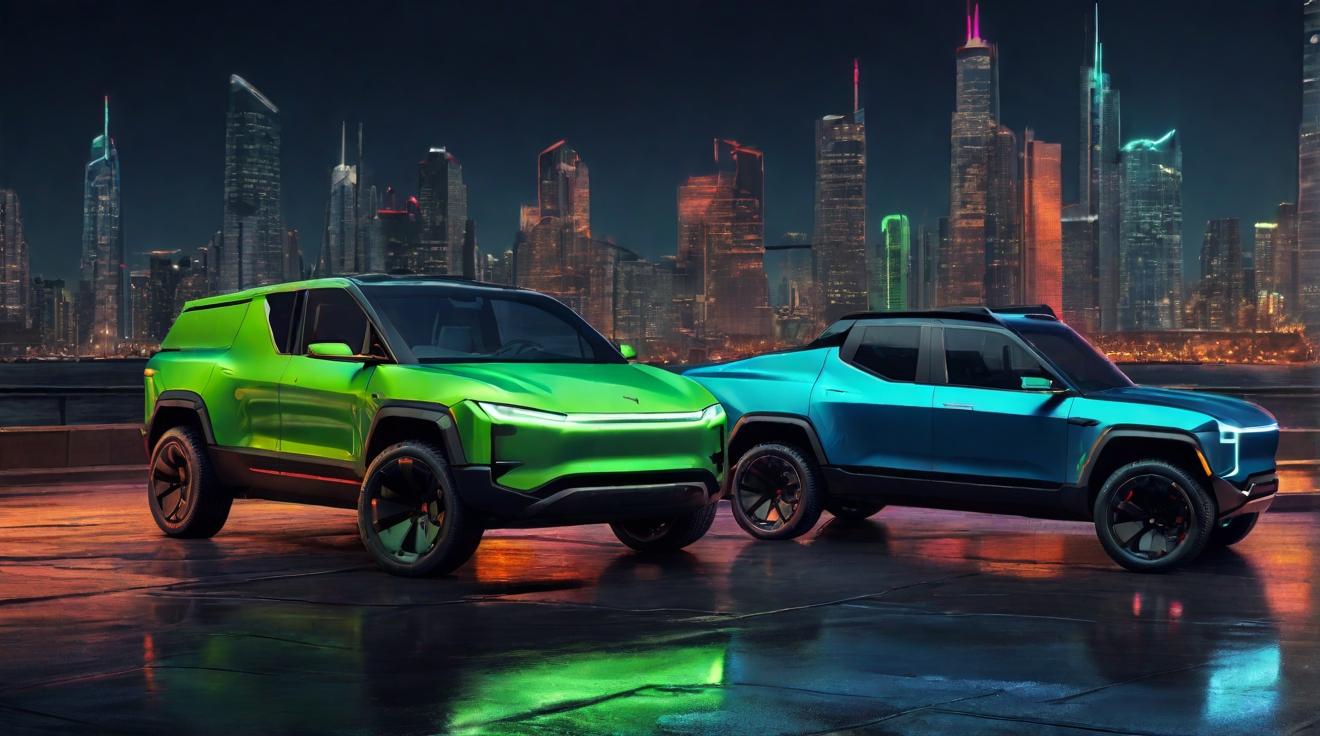Tesla Cybertruck vs. Rivian R1T: Electric Pickup Trucks SWOT Comparison
In the rapidly evolving electric vehicle (EV) market, the pickup truck segment is witnessing a revolutionary change. Two of the most anticipated models making headlines are the Tesla Cybertruck and the Rivian R1T. As consumers and investors alike weigh their options, a comprehensive SWOT analysis (Strengths, Weaknesses, Opportunities, Threats) becomes essential to understanding the potential of these electric pickups.
Tesla Cybertruck: A Futuristic Behemoth
Strengths:
- Innovative Design: The Cybertruck's unconventional, angular design sets it apart, making it a standout choice for consumers seeking uniqueness.
- Brand Loyalty: Tesla's strong brand recognition and loyal customer base provide a significant advantage.
- Autopilot Capabilities: Enhanced with Tesla's advanced Autopilot features, the Cybertruck promises a level of autonomous driving not seen in the pickup segment.
Weaknesses:
- Polarizing Aesthetics: The very design that attracts some may deter others, limiting its market appeal.
- Production Delays: Tesla's history of delays could hinder the timely delivery of the Cybertruck.
Opportunities:
- Sustainability Trend: The growing demand for sustainable transportation solutions positions the Cybertruck as a timely offering.
- Market Expansion: Tesla's established global presence offers a platform to introduce the Cybertruck to a wide market.
Threats:
- Competition: As more companies enter the EV space, Tesla faces increasing competition.
- Regulatory Challenges: Evolving regulations around autonomous driving technology could impact the Cybertruck's Autopilot features.
Rivian R1T: The Adventurer's Choice
Strengths:
- Off-road Capability: Designed for adventure, the R1T's robust off-road capabilities appeal to outdoor enthusiasts.
- Practical Features: With innovative storage solutions and spacious design, the R1T meets the practical needs of pickup users.
- Fast Charging Network: Rivian is developing a fast-charging network that promises convenience for R1T owners.
Weaknesses:
- Brand Recognition: Compared to Tesla, Rivian has lower brand awareness, which could affect consumer trust.
- Limited Production Capacity: As a newer company, Rivian's production capabilities are not as extensive, potentially limiting supply.
Opportunities:
- Growing EV Market: The expanding electric vehicle market presents a significant opportunity for Rivian to establish itself as a leader in electric pickups.
- Partnerships: Strategic partnerships can help Rivian expand its reach and enhance its technological capabilities.
Threats:
- Supply Chain Issues: Like many automakers, Rivian is susceptible to global supply chain disruptions, which could delay production.
- Intense Competition: The entry of established automakers into the EV market increases competition for Rivian.
Conclusion
The Tesla Cybertruck and Rivian R1T both offer compelling, yet distinct, visions for the future of electric pickup trucks. While Tesla leverages its brand strength and innovative technology, Rivian focuses on practicality and off-road prowess. As the EV market continues to grow, both companies face opportunities to expand and challenges to overcome. The ultimate success of these electric pickups will depend on their ability to meet consumer expectations and navigate the rapidly changing automotive landscape.













